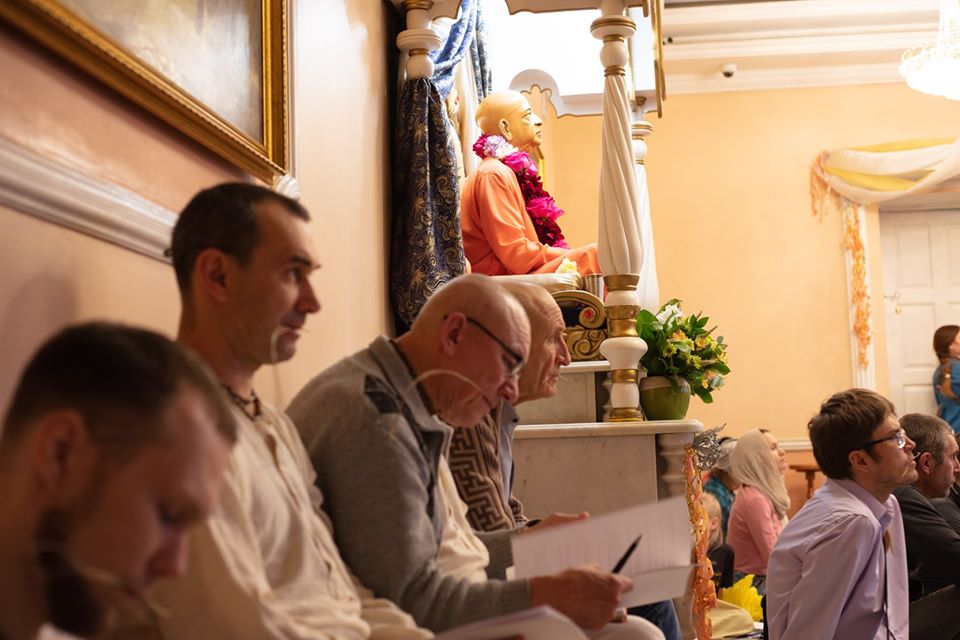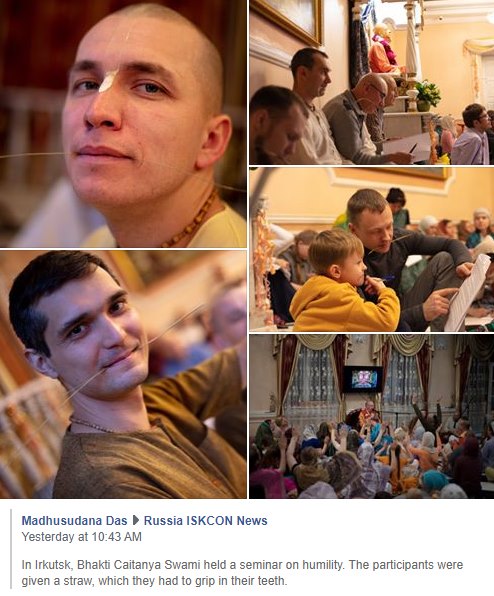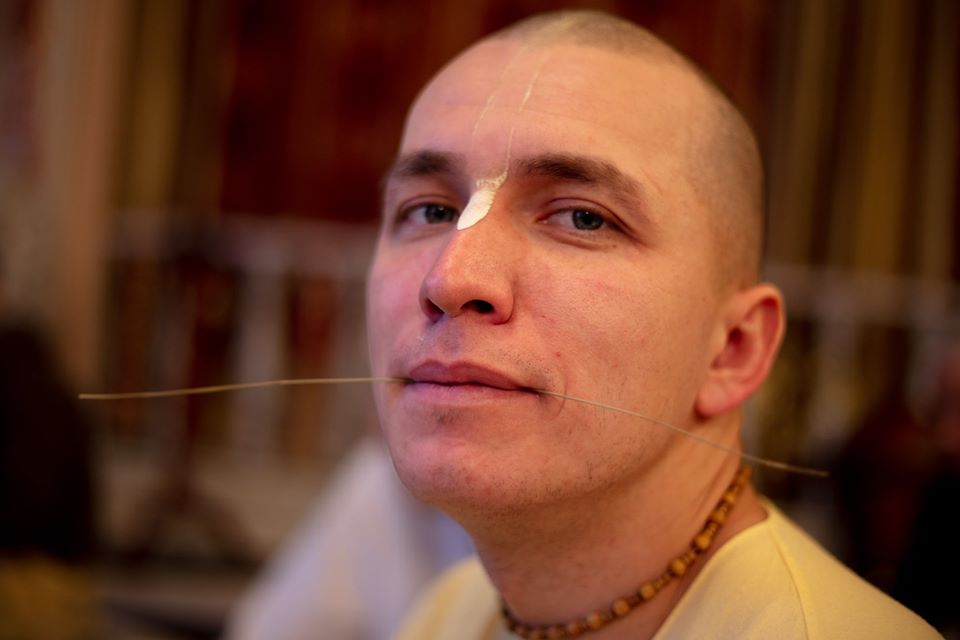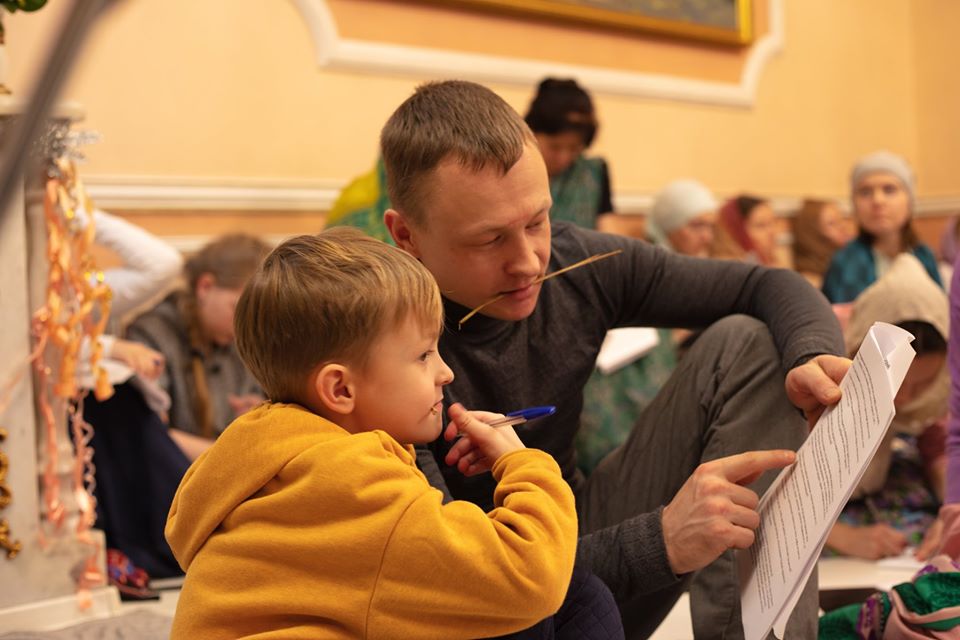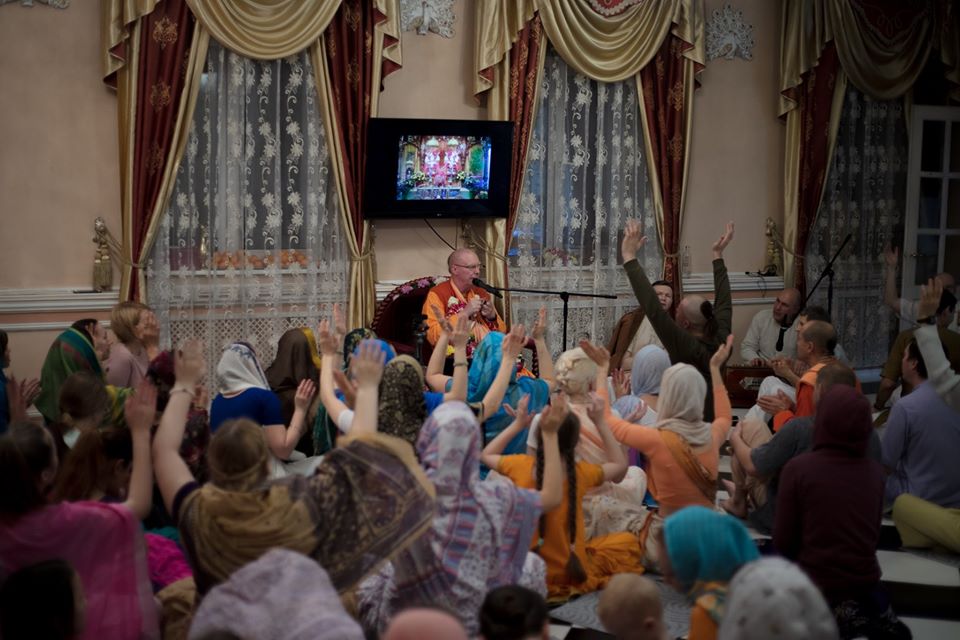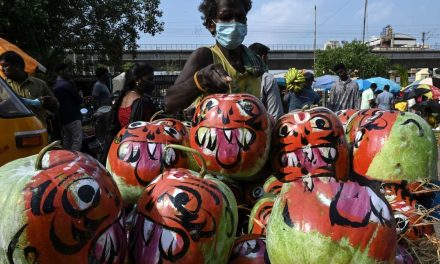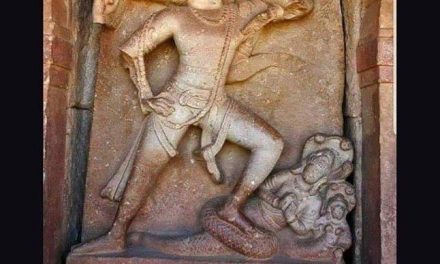Seeing these recent photos of an ISKCON Swami teaching devotees by having them sit with pieces of straw in their mouth brings up the question is the phrase “with straw in my teeth”, a literal or figurative statement?
Looking at this phrase which occurs several times in Chaitanya Charitamrita, it is my assumption that it is a figurative statement of putting your head on the ground, which is covered in dirt and straw and such things, and after offering obeisances then you have some dirt and some straw stuck on you.
To me it is a figurative, poetic statement, just as in English we have many figurative statements which if taken literally would not make sense. Who can really say 500 years ago which Bengali phrases were figurative or which were literal? But seeing as I have never seen anyone put straw in their mouth, and it is not a living tradition to do so, I assume it was always a figurative statement indicating offering obeisances and putting ones head down to the ground.
Even practically, it would be impure to put a straw in our mouth, cover it with saliva, and then take the straw out and dispose of it somewhere near you, (making your hand impure in the process). I cannot imagine brahmanas, who highly value their ritual purity, engaging in such a literal action.
Also the verses of Chaitanya Charitamrita even have people “speaking” with a straw in their mouth.
Here is one example from Chaitanya Charitamrita where Rupa and Sanatana “took bunches of straw in their teeth” and offered obeisances, and again as soon as they got up they “again took bunches of straw in their teeth” and began to offer prayers with straw in their teeth:
dui guccha tṛṇa duṅhe daśane dhariñā
gale vastra bāndhi’ paḍe daṇḍavat hañā
“In great humility, both brothers took bunches of straw between their teeth and, each binding a cloth around his neck, fell down like rods before the Lord.”
uṭhi’ dui bhāi tabe dante tṛṇa dhari’
dainya kari’ stuti kare karayoḍa kari
“The two brothers got up, and again taking straw between their teeth, they humbly offered their prayers with folded hands.”
Taken literally it makes no sense. It would mean they put straw in their mouth, all covered in saliva, then spat it out, then again picked up more straw and stuck it in their mouth and covered that with saliva, and then with the second straw in their mouth they began composing prayers, like how you talk with your mouth full.
Even though I see there are three or four verses in chaitanya charitamrita that say someone “put straw in their mouth” and offered obeisances, and there are several quotes from Srila Prabhupada talking about “taking straw in your mouth”, in my opinion I still conclude it was a figurative phrase.
To me its a poetic statement meant to indicate someone offered full obeisances before someone in the dirt and grass, which resulted in them “having dirt all over their body and straw in their teeth”. Definitely if someone offers a real good meaningful ashtanga namaskaram (dandavat) in the dirt, you would expect them to be dusty and dirty. In fact in some sampradayas it is expected to become dirty and it is considered a sin to wipe the dirt off of your forehead after offering obeisances.

